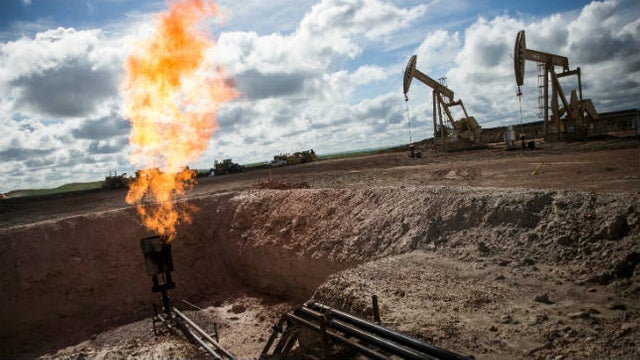
Trump Administration (Department of Interior, Bureau of Land Management) has released an environmental impact assessment (EIA) that greenlights fracking operations on 1.6 million acres in California. Trump wants to frack in eight counties that include: Yosemite, Sequoia, and Kings Canyon National Parks, and
Giant Sequoia, Carrizo Plain, and Cesar Chavez National Monuments. On the coast, the counties of San Luis Obispo and Santa Barbara are named for fracking. Take action.
"Once again, President Trump and Interior Secretary Zinke didn't let the law or facts get in their way in their zeal to repeal the 2015 Fracking Rule," said Attorney General Becerra. "The Interior Department's own factual record shows that the risks to our health and environment are real. So, once again, the California Department of Justice will get in the way of another reckless Trump violation of our laws." Take action.
Becerra went on to scold the administration for omitting Native American rights to land and health.
Fracking is bad for our parks and national monuments due to a worsening of air quality both particulate and methane (natural gas) emissions. Fracking uses much water mixed harmful chemicals that may pollute with wastewater on both land surfaces and in groundwater. Toxic waters and oil spills damage animal populations and ecosystems.
Fracking has been linked to increased risk of earthquakes or tremors large enough to be of concern for climbers on Half Dome or El Capitan.
|
 |
100% slow-release fertilizer Osmocote. Photo: R Moir.
Today, Arlington's local newsite,
YourArlington.com,
announced our work with the Arlington Conservation Commission which will dramatically reduce nitrogen pollution from lawns if citizens follow the new wetland permits condition to not use quick-release fertilizer
.
The article, titled: "Concom modifies wetland permits for lawn-care practices: for cleaner waters, less algae, eliminating fish kills," explains the problem of nitrogen pollution from fertilizer, mentions the recent death of fish in the Mystic River, and presents the merits of using slow-release fertilizer.
The Conservation Commission modified the wetland permitting conditions for new developments near water, as Rob said in the article: "What's good for lawns near wetlands is good for all of Arlington's lawns."
The solution is to use only a ½ pound of slow-release fertilizer once a year, in either spring or fall. Grass grows deep roots with slow-release fertilizer which feeds grass over time, stays in the ground unlike conventional fertilizer, puts on more foliage, becomes more resistant to pests and weeds, and will capture more carbon. This grass will act like a sponge for water and a buffer from extreme weather events.
|
 |
Hunter Lambert and Isobel Rounovski, ORI spring interns, with Conservation Commission handout on how lawns can fight climate change and capture carbon. Photo: R. Moir.
Hunter Lambert and Isobel Rounovski discuss the trials and tribulations of reaching out to and communicating with the Conservation Commissions of 80 MA towns and cities beginning with those in the Mystic River watershed. Over the course of 12 weeks, the determined duo connected with individuals working for 57 municipalities. The other towns did not answer calls or were not interested in working with us.
Eight Conservation Commissions invited ORI to their evening meetings, and Arlington took the step of actually modifying their wetland permit and condition language for properties to use only slow release nitrogen fertilizer on established lawns.
Isobel and Hunter talk about how each town had different concerns that needed to be addressed. They discovered retail conservation, where each place was unique.
|
|
Your donation gives us the means to work with Conservation Commissions and local governments on modifications to lawn care for more responsible practices.
After we reached out to 80 municipalities, Arlington stopped nitrogen pollution on lawns by wetlands. We've only got 349 Massachusetts municipalities to go and sure could use your help.
|
|
Choose from more than 100 radio broadcast episodes, also free on iTunes
Join ORI's Fan page on Facebook.
We've surpassed 6,000 likes. When you and friends like us, it helps us get the word out and makes it easier for others to donate.
Wear with pride ORI logo items.
|
|
|
|
|